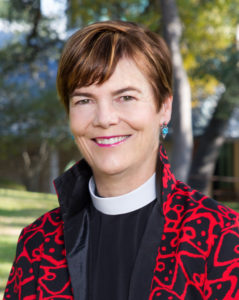It’s not a topic of conversation at my early morning workout at Dane’s Body Shop, and there’s little mention made on the cable TV news at 8 in the evening, but I’m all focused on preparation for the Easter Triduum observance at Christ Chapel this week. Seminary students and sacristans, faculty and staff are gathering the equipment, proofreading the bulletins, writing homilies, rearranging the chairs in the chapel. Parents are readying themselves for long services with the kids – hoping that the washing of feet and the flickering candles and bells and smoke and fire and water will keep them occupied and if not, perhaps they will sleep at the back of the chapel on the sleeping bags spread out there.
“Triduum” is an uncommon word outside of church circles. It means
“a period of three days of preparation for a feast day. The term is most frequently used for Maundy Thursday, Good Friday, and Holy Saturday, the three days prior to Easter Sunday that are the concluding days of Holy Week, also known as the Easter Triduum. Other usage for the Easter Triduum reckons the days from the evening of Maundy Thursday through the evening of Easter Day. The term may indicate any three-day period of preparation for a feast.”1
For the past several years it has been the tradition at Seminary of the Southwest to celebrate the Triduum together as a community.
At the services of the Triduum we physically remember Jesus’ day final supper with his friends (what a former student memorably called “the solemn liturgy of departure”), the day of his torture and death, the silent Saturday of his entombment, and the long story of God and humanity, coming to its climax when Jesus is raised by God on Easter morning.
While I’m getting ready, I’m looking forward to anticipate what we will need, all the while flooded by images from the past:
Large people and small, wives and husbands, children and parents, rivals, teachers, best and worst friends stumbling forward to be washed and to wash.
The year the paschal candle was simply too enormous for the chapel and needed to be forcibly reduced by a courageous sacristan.
The night the three brothers were baptized and the oldest, who was 8, read the story of the exodus with such ferocity that the congregations relived with horror being pursued by “Pharaoh and all his army, his chariots, and his chariot drivers” then stared mesmerized at the Egyptians, dead on the seashore.
We grieve, suffer, and rejoice. In sequence and all at once.
As it happens at Christmas and on Sunday mornings for those who prepare for liturgy and for everyone who organizes a holiday or family gathering, we make ready for the feast, then the feast takes over and sweeps us into it. We get soaked by the waters of baptism. The morning dawns and Easter happens. Imagining forward and recalling back, the preparing has been not just a means to an end, but also part of the gift.
Therefore let us keep the feast. Alleluia.
What are the most significant feasts or occasions for which you prepare?
What are your spiritual practices of preparation?
How do you prepare for Holy Week and Easter?
Won’t you join us for Triduum? Any and all are welcome. You can find our schedule of services here.
1 http://archive.episcopalchurch.org/109399_15503_ENG_HTM.htm


